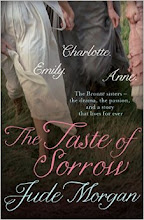The story is set in 1922. Welcome to a middle class suburban London peopled largely by women and the ghosts of the men they lost in the War. This is the beginning of the Britain we know now, when once well-heeled families, no longer able to afford servants, must do their own housework and shopping, and hang their heads at the shame of it all. It is an unhappy world, grey, faded, cracking and peeling. Frances and her mother, desperate to hang on to the family house, despite having lost most of the family that once lived in it, take in a lodging couple, the Barbers, who seep into their lives in unexpected ways - although I have to say that if you know anything at all about Sarah Waters, what happens is not that unexpected! And that might be my first criticism: the first two thirds of the book are taken up with nothing more than the 'shocking' revelation that Frances is gay. Now I accept what Waters is doing here - she takes a glimpse of that twenties Bohemianism, that 'anything goes' attitude of the Bright Young Things, and stuffs into the moral circles of middle class society long before that society is ready even to acknowledge its existence, let alone accept it. Frances has been forced to give up her girlfriend and now withers, little more than a housekeeper for her mother, who ignores what she knows about her daughter and continues to try and set her up with a 'nice young man'.
So, that is, as I say, the first two thirds of the book. The characters are believable, are real, and grow over the expansive time Waters gives them to do so. Relationships are complicated, and become more so as the book unwinds. Plot revolves around these people, with little seen of the world beyond the house on Champion Hill at all. People go out for the day, but we rarely go with them: instead we stay in the house, and begin to feel as hemmed in, as claustrophobic, as Frances herself does.
But this is Sarah Waters, and I kept reading, kept reading, waiting for the twist, waiting for the action to come.
And it does. It comes suddenly, not entirely unexpectedly, but shockingly, nevertheless. And it is classic Waters. It is a game changer. And the book becomes something else. I couldn't put it down. My mind was running reels. And I wonder if this is the cleverness, the enjoyment I get from Waters' books, that I am never satisfied that I have the whole, or indeed the real story... I found the end slightly disappointing, a bit wishy-washy - or did I? Because even when it's all over, I still find myself asking, yes, but did Lilian...? Could she have..? Did she...?
Although I felt the first half of the book could have been shorter, and although the ending did not excite me as much as I would have liked, I still loved this book. It was easy to read, a real page turner, and thrilling, in places, as only Sarah Waters can be. It retains touches of the Victorian melodrama that I feel is her true strength, and to which I wish she would one day return, whilst capturing the feel of post-war cynicism: I found the distrust of veterans, begging on street corners, an interesting, and probably accurate, middle class female attitude that sat nicely alongside the more accepted canonising of lost sons and husbands.
I would heartily recommend The Paying Guests, and would go so far as to say it is close to being a return to form of one of Britain's most brilliant writers.



